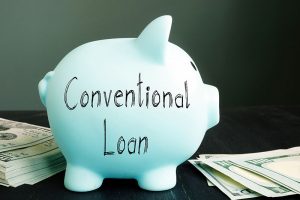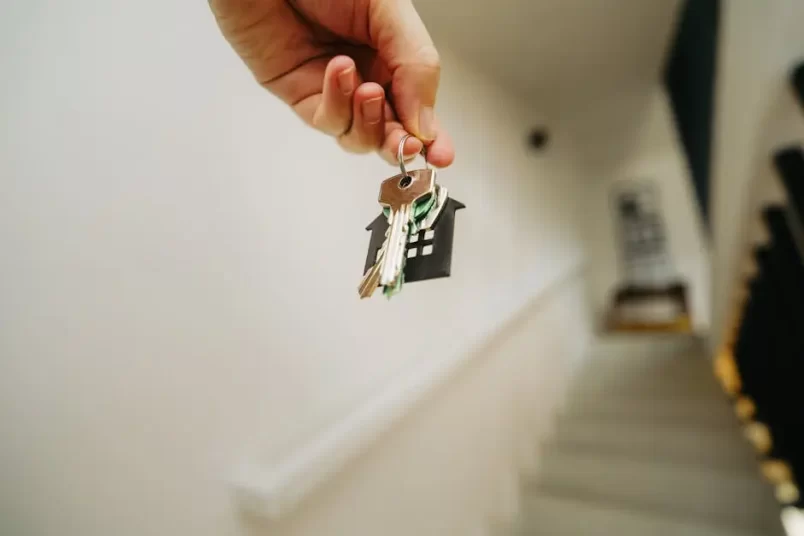Why Should Raleigh Residents Use a Mortgage Savings Calculator Before Refinancing? Refinancing your mortgage can…
Refinancing Your FHA Loan to a Conventional Loan: Is It Right for You?

Refinancing Your FHA Loan to a Conventional Loan: Is It Right for You?
Refinancing an FHA loan to a Conventional Loan can provide benefits like eliminating the mortgage insurance premium, reducing monthly costs, and potentially enhancing long-term savings. Here’s a comprehensive look at the pros and cons, key differences between FHA and Conventional Loans, and other factors to consider to help you make the right decision.
Why Consider Refinancing from FHA to Conventional?
For many North Carolina homeowners, an FHA loan may have been their first mortgage due to its flexibility on down payments and credit requirements. FHA loans are popular among first-time homebuyers, as they offer lower down payment options and more lenient credit qualifications. However, FHA loans also have mortgage insurance premiums (MIP), which add to monthly payments. Refinancing to a conventional mortgage can help eliminate this expense if certain criteria are met.
Understanding the Differences: FHA Loans vs. Conventional Loans
To determine if refinancing is right for you, it’s essential to understand the core differences between FHA and Conventional Loans.
FHA Loans
- Flexible Credit Requirements: FHA loans have more lenient credit score requirements, making them accessible to a wider range of borrowers.
- Lower Down Payments: FHA loans allow as little as 3.5% down, making homeownership achievable with limited savings.
- Mortgage Insurance Premiums (MIP): FHA loans require an upfront MIP at closing and ongoing monthly payments. Depending on your equity, you may need to pay MIP for 11 years or the life of the loan.
Conventional Loans
- Higher Credit Standards: Conventional loans typically have stricter credit score requirements than FHA loans.
- No Mortgage Insurance with 20% Down: Mortgage insurance is only required if your down payment is less than 20%, and it can be canceled once you reach 20% equity.
- Higher Loan Limits: Conventional loans generally allow for higher borrowing limits than FHA loans.
Mortgage Insurance: A Key Motivation for Refinancing
One significant factor that differentiates FHA from conventional loans is mortgage insurance. FHA borrowers pay two types of insurance:
- Upfront Mortgage Insurance Premium (UFMIP): This one-time fee, generally 1.75% of the loan amount, can be added to the loan balance at closing. For instance, a $200,000 FHA loan requires a $3,500 UFMIP.
- Monthly MIP Payments: Typically ranging from 0.45% to 1.05% of the loan balance, this fee continues monthly, often adding $100 to $500 to the mortgage payment.
Eligibility for Refinancing from FHA to Conventional
Refinancing from an FHA to a Conventional Loan is possible, but it comes with requirements. To qualify for a conventional refinance, you’ll need to meet minimum credit and equity requirements. If you haven’t reached 20% equity, private mortgage insurance (PMI) will still apply but can be canceled once you do.
Pros and Cons of Refinancing Your FHA Loan to a Conventional Loan
Pros of Refinancing
- Eliminate Mortgage Insurance: Achieving 20% equity in your home allows you to remove MIP, reducing your monthly payment.
- Lower Long-Term Costs: Without ongoing MIP, you may significantly cut down on the total loan cost.
- Increased Borrowing Power: Conventional loans generally have higher borrowing limits than FHA loans, allowing for greater flexibility.
- Faster Equity Growth: By eliminating MIP and potentially securing a lower interest rate, you can build home equity faster.
Cons of Refinancing
- PMI if Equity is Below 20%: Without 20% equity, PMI will still be required, adding to the monthly cost until equity goals are met.
- Documentation and Fees: Refinancing to a conventional loan involves gathering financial documents and covering closing costs.
Requirements for FHA to Conventional Refinance
Refinancing from an FHA to a conventional loan requires documentation of income, credit history, and assets. Here’s what lenders will likely request:
- Recent pay stubs
- Tax returns, W-2s, or 1099s
- Credit report
- Asset statements
In some cases, a property appraisal may also be necessary to confirm your home’s value.
Other Refinancing Options: FHA Streamline Refinance
If you’re not ready for a conventional refinance, the FHA Streamline Refinance program is another option. It allows for quick refinancing without extensive income documentation and appraisal, making it ideal for lowering monthly payments or switching from an adjustable-rate mortgage (ARM) to a fixed-rate loan. This program is particularly beneficial for homeowners whose property value has dropped.
FHA Streamline Eligibility Requirements
- You must currently have an FHA-backed mortgage.
- All payments must be up to date.
- At least six payments must have been made on the existing FHA loan.
- A full 210 days must have passed since the closing of the existing mortgage.
- Cash-out amount is limited to $500.
The FHA Streamline also requires a “Net Tangible Benefit,” meaning the refinancing must result in a financial gain for the borrower, such as lower payments or a switch from ARM to a fixed-rate mortgage.
Questions to Ask Before Refinancing
- What are My Financial Goals?
Determine if your primary objective is to reduce monthly payments, switch to a fixed-rate loan, or take out cash for other expenses. A clear goal helps guide your decision.
- Does Refinancing Make Financial Sense?
Use a loan calculator to compare monthly payments under current rates. If rates are higher than your current FHA loan rate, refinancing might not be cost-effective.
- What’s My Home’s Current Value?
Home values in North Carolina have generally increased, potentially allowing you to reach 20% equity. If you owe more than your home’s worth, FHA Streamline may still be an option.
- Do I Have 20% Equity?
Having 20% equity means you can avoid PMI on a conventional loan. If not, refinancing may still be worth it if it lowers your mortgage rate and monthly payment.
- Can I Afford Closing Costs?
Closing costs and fees vary but are a factor to consider. With a conventional refinance, these costs may be rolled into the loan, while FHA Streamline typically requires upfront payment. (Certified Home Loans offers a No Closing Cost Refinance Option.)
- Can I Provide the Necessary Documentation?
A conventional refinance requires similar documentation as your initial mortgage. If you have credit challenges, FHA Streamline may be a more accessible option.
Ready to Explore Your Refinancing Options?
Refinancing from an FHA to a conventional loan can lead to significant long-term savings, but it’s essential to consider all aspects. If you’re unsure, talking to a Certified Home Loans expert can clarify your options and guide you in finding the best refinancing solution. Whether you’re considering conventional refinancing or an FHA Streamline, our loan specialists are here to help you make an informed decision. Contact us or apply online to get started!




